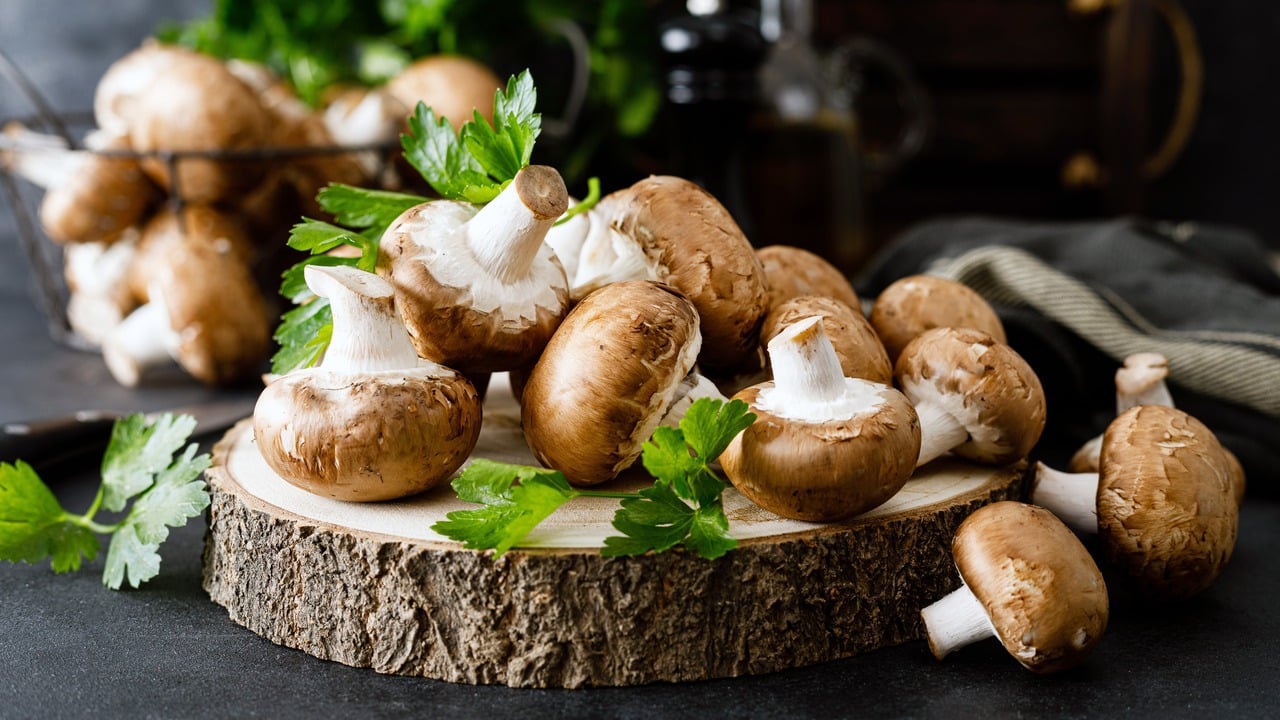A Healthy Fungus Among US: The Surprising Health and Nutritional Benefits of Mushrooms

According to a Maximize Market Research report, the global mushroom market is projected to reach $105.20 billion by 2029, an economic testament to the growing popularity of this healthy fungus.
Mushrooms are naturally low in calories, fat, and cholesterol. They're also the best sources of vitamin D commonly found in the produce aisle. Mushrooms also provide B vitamins and potassium (8% DV), along with micronutrients and antioxidants such as ergothioneine and selenium.
“We've evaluated results under the lens of our nation's most pressing health challenges: obesity; adequate vegetable consumption; nutrients of concern like vitamin D, immunity, and neurological function,” said Roger Clemens, DrPH, Adjunct Professor of Pharmacology and Pharmaceutical Sciences, School of Pharmacy at the University of Southern California and immediate past president of the Institute of Food Technologists.
“By focusing on mushrooms' inherent nutritional properties, we are working together as a global community to identify ways to improve the health of our population and encourage the continued growth of a vibrant industry,” added Clemens.
Edible mushrooms are naturally low in calories but are very nutrient-dense. Mushrooms are also a great source of health-boosting vitamins, minerals, and antioxidants. Exposing mushrooms to ultraviolet light for only a few seconds creates a vegetable-based source of vitamin D. They are also excellent sources of selenium, copper, thiamin, and magnesium.
It’s Not Meat, It’s Mushrooms
One of the most familiar uses of mushrooms is as a meat substitute. Many varieties have a natural meat-like texture and the same savory umami flavor profile as red meats. Because mushrooms are lower in calories than the meats they typically replace in dishes, consumers could potentially lose weight by making the switch more permanently.
When introducing vegetarian or vegan ingredients to a healthier diet plan, mushrooms are among the first foods home cooks reach for. The dish may be a direct mushroom-for-meat swap or a vegetarian recipe. Introducing vegetable-forward side dishes is typically the next step toward a successful shift toward a healthier plant-based diet. Mushroom cultivation is environmentally friendly, requiring minimal amounts of water and chemical fertilizers to grow crops all year long.
Health Benefits Associated With Mushrooms
Mushrooms are an incredible superfood you need to have in your diet.
Potentially Lower Blood Pressure
Mushrooms naturally contain a high level of potassium, a nutrient that balances out the negative impact of a diet high in sodium. Excess salt intake has a direct effect on blood pressure, and the potassium in mushrooms lessens the tension in blood vessels, thereby lowering overall blood pressure readings.
Speaking of sodium, mushrooms are also naturally lower in sodium, which means they can be used in place of saltier ingredients in healthier dishes. Family members on restrictive low-sodium diets can cut back on salt consumption without sacrificing savory flavors.
Boost Immunity
Mushrooms have a natural anti-inflammatory effect on the body and contain high levels of immunity-boosting selenium, vitamin D, and vitamin B6. Selenium helps prevent or reduce damage to body cells, while vitamin D focuses on healthy cell growth. Vitamin B6 helps form red blood cells, an important immune system component.
Assist in Weight Loss
The antioxidants found in mushrooms are believed to boost the body’s natural defenses against opportunistic bacteria and viruses. When the immune system becomes overly stressed, other hormones that contribute to weight gain are released, such as cortisol. The stress of fighting off infections can also aggravate obesity-related hypertension, and the nutrients in mushrooms address that issue as well.
Mushrooms 101: The Basics of Mushroom Preparation
In the culinary world, mushrooms are considered one of the most beginner-friendly ingredients to prepare. Because fresh mushrooms are 80% to 90% water, they are nearly impossible to burn, even in a hot, dry pan. Mushrooms can be sautéed with minimal butter or oil and only require a dash of seasoning to enhance their natural umami flavors.
Mushrooms are cultivated in heavily fertilized soil, so they do need to be washed thoroughly before use. This is generally achieved with a soft brush designed to clean delicate vegetables. Soaking and rinsing mushrooms can be counter-productive since mushrooms contain high levels of moisture by design, and additional water is often absorbed into the mushrooms' numerous cells. A gentle but thorough scrubbing with minimal rinsing should be sufficient.
Whole mushrooms can be sliced into a range of shapes, depending on the individual dish. Thinly sliced mushrooms work well as pizza toppings or as part of a gravy or sauce. Mushrooms can also be quartered for use in stir-fries or vegetable-forward recipes. Whole mushrooms are often used as the base for seasoned stuffing mixes or meat substitutions.
Mushrooms can be sauteed or pan-fried at a higher temperature to achieve a flavorful sear, and they can also be grilled or charred. They can be baked as part of a casserole or main dish as well. Some varieties of mushrooms can be safely eaten raw and are often included as an option on restaurant salad bars.
This article was produced by Media Decision and syndicated by Wealth of Geeks.
